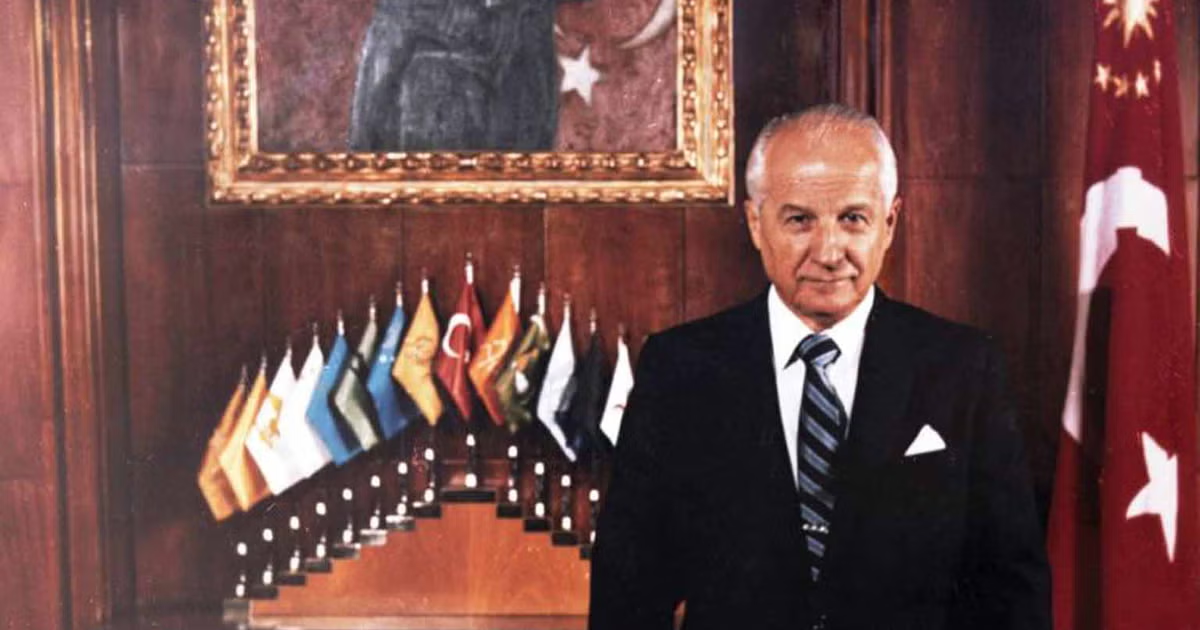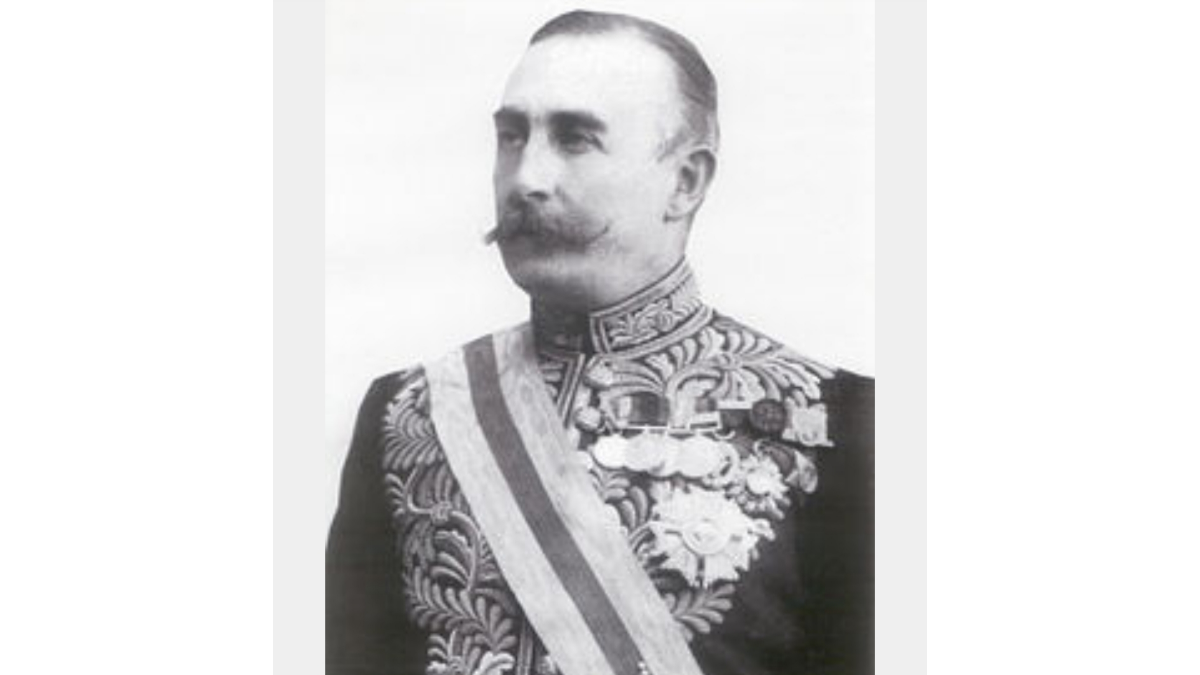
Kenan Evren: The 7th President of Turkey (1982–1989)
japanchildrenrights.org – Kenan Evren served as the 7th President of Turkey from 1982 to 1989, overseeing the nation during a crucial and turbulent period in its history. His presidency followed the 1980 military coup, which he played a central role in executing. Evren’s tenure came at a time of political chaos and social upheaval, following years of violence, economic instability, and a breakdown of democratic processes. Although his leadership began with promises of stability and reform, his time in office became a symbol of the military’s dominance over civilian politics, leaving a controversial legacy in the history of Turkey’s political development.
Early Life and Military Career
Kenan Evren was born on July 17, 1917, in the village of Alaşehir in Turkey. He entered the Turkish Military Academy in 1938 and quickly rose through the ranks of the Turkish Armed Forces. Evren’s career in the military was distinguished by his leadership in several key operations, including his service as a commander in the Turkish Army. By the time of the 1980 coup, he had reached the rank of general and was the Chief of the General Staff.
Evren’s rise to power was rooted in his reputation within the military. He had been a part of the military’s increasingly influential role in Turkish politics, particularly in the 1970s when political instability in the country reached its peak. In 1980, after years of escalating violence and political polarization, Evren played a leading role in orchestrating a military coup that ousted the civilian government and dissolved the parliament.
The 1980 Military Coup and Seizing Power
In the late 1970s, Turkey was mired in political chaos. The country was divided between left-wing and right-wing factions, both of which engaged in violent clashes, including armed street battles. The political institutions were paralyzed, and there was widespread social unrest, exacerbated by economic turmoil. The civilian governments of the time were unable to cope with the deepening divisions, and the military, viewing itself as the guarantor of the nation’s stability, intervened.
On September 12, 1980, Kenan Evren, then Chief of the General Staff, led a military coup that overthrew the government of Prime Minister Süleyman Demirel and President Fahri Korutürk. The coup resulted in the arrest of thousands of political leaders, intellectuals, and activists, while the military imposed martial law across the country. Evren became the leader of the military junta, assuming the title of National Security Council President and later becoming the country’s president in 1982 after a controversial referendum.
The coup was justified by the military as a necessary intervention to restore order and prevent Turkey from descending into civil war. However, the aftermath was marked by widespread human rights abuses, including torture, executions, and the suppression of political opposition. The military junta promised a return to civilian rule, but during Evren’s leadership, military control remained strong.
Evren’s Presidency: A Period of Military Rule
Kenan Evren’s presidency began in 1982, after a constitutional referendum ratified his rule. His presidency was characterized by the consolidation of military authority in the political system, with Evren serving as both the head of state and a symbol of military power. During this period, Turkey was governed by a combination of military decrees and civilian institutions, and the military’s influence remained deeply embedded in the country’s politics.
Constitutional Changes and Authoritarian Rule
One of the most significant actions taken during Evren’s presidency was the drafting of a new constitution in 1982. The constitution, which was ratified in a controversial referendum, significantly strengthened the power of the president and the military. It gave the president the authority to appoint key government officials, control the judiciary, and dismiss the parliament. While the constitution promised to restore democratic institutions, it also effectively curtailed many of the civil liberties that had been central to the Turkish Republic’s original framework.
Evren’s government implemented measures that centralized power in the hands of the military and limited political pluralism. Political parties were disbanded, and many former political leaders and activists were banned from participating in politics. The political environment was heavily controlled, with censorship of the press and crackdowns on dissent. The military junta maintained strict oversight of political life, and many people were imprisoned or exiled for their opposition to the regime.
Social and Economic Reforms
During Evren’s presidency, the Turkish economy faced numerous challenges. The country was suffering from high inflation, a large public debt, and unemployment. To stabilize the economy, Evren’s government implemented neoliberal economic policies that included privatization of state-owned enterprises and deregulation of the economy. These measures, which were aligned with international financial institutions like the International Monetary Fund (IMF), had mixed results. While they led to some short-term economic stabilization, they also exacerbated income inequality and social disparities.
Evren’s government focused on modernization, including infrastructure projects, but the benefits of these reforms were often uneven, and many segments of society remained disillusioned with the government’s economic policies.
Political Repression and the Suppression of Dissent
Evren’s presidency was also marked by widespread political repression. The military regime, in its effort to stabilize the country, took harsh measures against political opposition, particularly leftist and Kurdish movements. Thousands of people were detained and tortured under the military regime. Many were executed, and the military’s actions sparked widespread condemnation from human rights organizations.
The military also took steps to weaken the influence of political parties and unions, which were seen as sources of instability. While political parties were eventually allowed to return to politics in the early 1980s, they were heavily regulated and fragmented. Evren’s government maintained a firm grip on the political system, and the country was unable to achieve a full return to democratic governance.
The Kurdish Question and the Use of Force
A critical issue during Evren’s presidency was the rise of the Kurdish insurgency, led by the PKK (Kurdistan Workers’ Party), which began its armed struggle for Kurdish autonomy in the mid-1980s. The military regime responded with force, and the Kurdish population faced harsh repression. The government implemented policies that sought to assimilate the Kurdish population, including restrictions on the Kurdish language and culture. The ongoing conflict in the southeast of Turkey became one of the defining issues of Evren’s presidency.
The End of Evren’s Presidency and the Aftermath of the 1980 Coup
Kenan Evren’s presidency ended in 1989, but his legacy was marred by the authoritarian nature of his rule and the widespread human rights violations committed during his time in office. Though Turkey had returned to civilian governance after the military coup, the military’s influence remained strong in the country’s political system. Evren’s presidency had successfully restored stability, but at the cost of political freedoms and civil liberties.
In 2010, a court case was brought against Evren and other members of the junta for their role in the 1980 coup. Evren, who had remained an influential figure in Turkish politics, was sentenced to life imprisonment, although he passed away in 2015 before serving any sentence.
Legacy
Kenan Evren’s legacy is deeply controversial. On one hand, he is credited with bringing stability to Turkey after years of political chaos and violence, but his presidency also represented a period of military rule that suppressed political freedoms, human rights, and democratic institutions. The effects of the 1980 coup and the subsequent military dominance over Turkish politics lingered for decades, and Evren’s role in these events remains a subject of intense debate.
For many, Evren’s presidency symbolizes the military’s dominance over Turkish political life in the late 20th century. While he may have brought order to a fractured nation, the price of that order was steep, and Turkey’s democratic development would continue to be shaped by the consequences of military intervention for many years to come.

